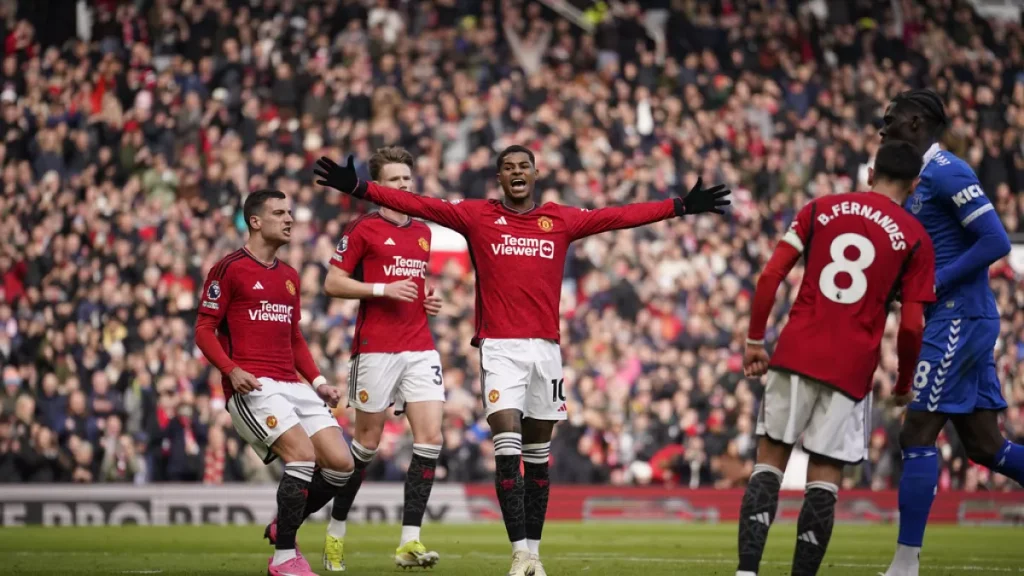Introduction
Manchester United, affectionately known as Man U, is more than just a football club. It’s a global phenomenon with a rich history that spans over a century. From its humble beginnings to becoming one of the most successful and recognizable football clubs in the world, Manchester United’s journey is filled with triumphs, tragedies, and unforgettable moments.
The Early Years
Formation and Early Successes
Manchester United was founded in 1878 as Newton Heath LYR Football Club. The early years were a rollercoaster of ups and downs, but the club’s resilience set the stage for future greatness. By 1902, the club had rebranded as Manchester United and soon after won their first league title in 1908.
Key Figures in the Early Days
The early success of Manchester United wouldn’t have been possible without key figures such as Ernest Mangnall, the club’s first successful manager, who guided the team to their first league title. Players like Billy Meredith and Charlie Roberts also played crucial roles in establishing the club’s early reputation.
The Busby Era
Arrival of Sir Matt Busby
The arrival of Sir Matt Busby in 1945 marked the beginning of a new era for Manchester United. Busby’s vision and innovative approach transformed the club, laying the foundation for future success.
The Busby Babes
Busby was known for his emphasis on youth development, leading to the emergence of the legendary “Busby Babes.” This young, talented squad captivated fans and dominated English football, winning consecutive league titles in 1956 and 1957.
Tragedy and Triumph
Munich Air Disaster
The Munich Air Disaster in 1958 was a devastating blow to Manchester United, claiming the lives of eight players and leaving many others injured. The tragedy shook the football world but also demonstrated the club’s resilience and spirit.
Recovery and European Glory
In the aftermath of the disaster, Busby rebuilt the team, culminating in Manchester United becoming the first English club to win the European Cup in 1968. This victory was a testament to the club’s indomitable spirit and Busby’s remarkable leadership.
The 70s and 80s: A Time of Transition
Managerial Changes
The 1970s and 80s were a period of transition for Manchester United, marked by frequent managerial changes. Despite the turbulence, the club managed to secure several FA Cup victories, keeping the trophy cabinet from gathering dust.
Key Players and Moments
During this era, players like Bryan Robson and Norman Whiteside became club legends, delivering memorable performances that kept the fans’ spirits high.
The Ferguson Era
Appointment of Sir Alex Ferguson
The appointment of Sir Alex Ferguson in 1986 was a turning point for Manchester United. His initial years were challenging, but Ferguson’s determination and strategic acumen soon paid off.
Building a Dynasty
Ferguson built a footballing dynasty, leading Manchester United to unprecedented success. Under his guidance, the club won 13 Premier League titles, five FA Cups, and two UEFA Champions League titles, among other honors.
The Treble-Winning Season
1998-1999 Achievements
The 1998-1999 season was the pinnacle of Manchester United’s success under Ferguson, as the club won the treble—Premier League, FA Cup, and UEFA Champions League. This remarkable achievement cemented the club’s status as one of the greatest in football history.
Key Players and Matches
Key players like David Beckham, Ryan Giggs, and Roy Keane were instrumental in this success. The dramatic Champions League final against Bayern Munich, where United scored two last-minute goals to win, remains etched in football folklore.
Dominance in the 2000s
Continued Success under Ferguson
The 2000s saw continued dominance, with Manchester United regularly winning league titles and competing fiercely in European competitions. Ferguson’s ability to adapt and rebuild the squad ensured sustained success.
Notable Signings and Departures
Signings like Cristiano Ronaldo and Wayne Rooney brought new energy and talent to the team, while departures of legends like Eric Cantona and Roy Keane marked the end of an era but also the beginning of a new chapter.
Post-Ferguson Challenges
Transition Period
Ferguson’s retirement in 2013 ushered in a challenging transition period for Manchester United. Successor David Moyes struggled to replicate Ferguson’s success, and the club went through several managerial changes in a short span.
Managerial Appointments
Managers like Louis van Gaal, José Mourinho, and Ole Gunnar Solskjær each brought their own styles and philosophies, with varying degrees of success. The search for stability and a return to the top continues.
Modern Day Manchester United
Current Squad and Manager
As of 2024, Manchester United, under the management of Erik ten Hag, is rebuilding and showing promise. The current squad features a mix of experienced players and emerging talents, aiming to restore the club’s former glory.
Recent Performances and Standings
Recent performances have shown improvement, with the team competing for top positions in the Premier League and making notable runs in domestic and European competitions.
Youth Academy and Development
Importance of the Academy
Manchester United’s youth academy has always been a cornerstone of the club’s philosophy. The emphasis on nurturing young talent ensures a continuous pipeline of skilled players ready to make their mark.
Notable Graduates
The academy has produced legends like George Best, Ryan Giggs, and Paul Scholes. More recently, players like Marcus Rashford and Mason Greenwood have risen through the ranks to become key figures in the first team.
Manchester United and Global Influence
Brand and Commercial Success
Manchester United’s brand is one of the most powerful in sports, with lucrative sponsorship deals and a massive global following. The club’s commercial success has been instrumental in funding its on-field ambitions.
Worldwide Fan Base
With millions of fans worldwide, Manchester United’s influence extends far beyond the pitch. The club’s global reach is a testament to its storied history and ongoing appeal.
Rivalries and Derby Days
Major Rivals
Manchester United’s rivalries with clubs like Liverpool, Manchester City, and Arsenal are some of the fiercest in football. These matches are highly anticipated and often define seasons.
Memorable Matches
Memorable derbies and clashes, such as the historic 1999 FA Cup semi-final replay against Arsenal, showcase the intense competition and high stakes involved.
Future Prospects
Upcoming Talents
The future looks bright for Manchester United, with several promising talents coming through the ranks. Players like Alejandro Garnacho and Hannibal Mejbri are seen as future stars.
Future Goals and Aspirations
The club’s aspirations remain high, with aims to reclaim the Premier League title and achieve European success. The focus is on building a team capable of sustained dominance.
FAQs
What is Manchester United’s most successful period?
The most successful period for Manchester United was under Sir Alex Ferguson, particularly the late 1990s and early 2000s, culminating in the treble-winning season of 1998-1999.
Who are some of the greatest players in Manchester United’s history?
Some of the greatest players include George Best, Eric Cantona, Ryan Giggs, Paul Scholes, and Cristiano Ronaldo.
Conclusion
Manchester United’s journey is a testament to resilience, innovation, and a relentless pursuit of excellence. From the early years to the present day, the club’s legacy is rich with memorable moments and legendary figures. As the club looks to the future, the spirit of Manchester United continues to inspire fans around the world.



